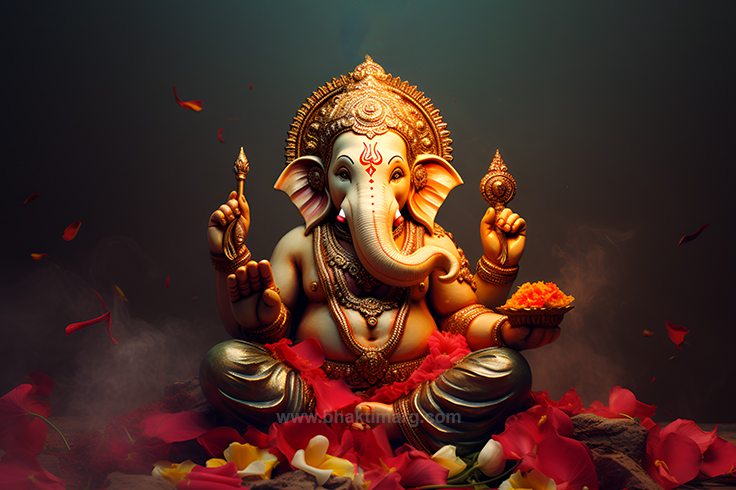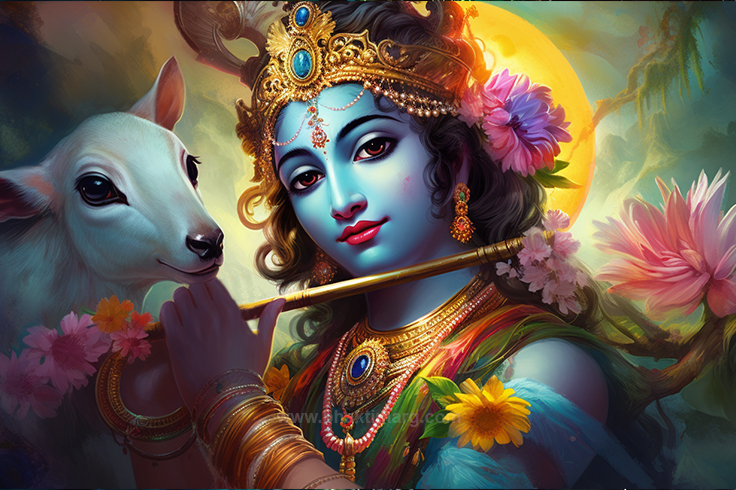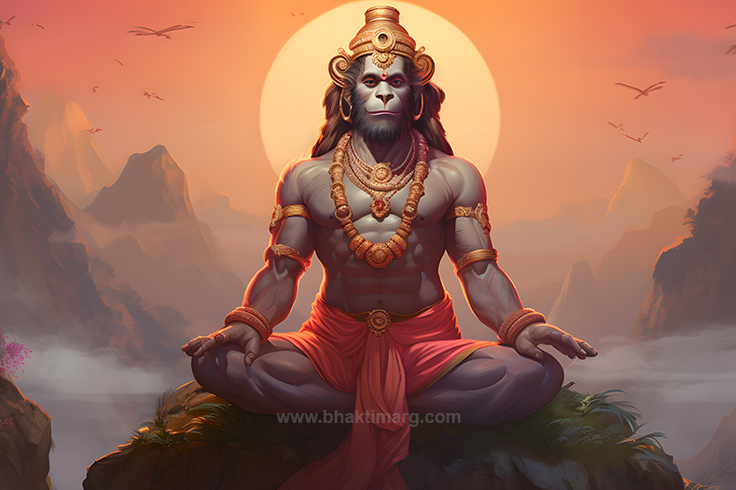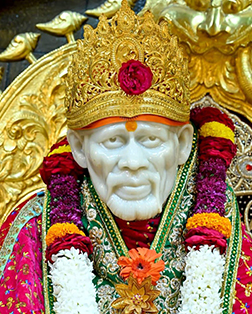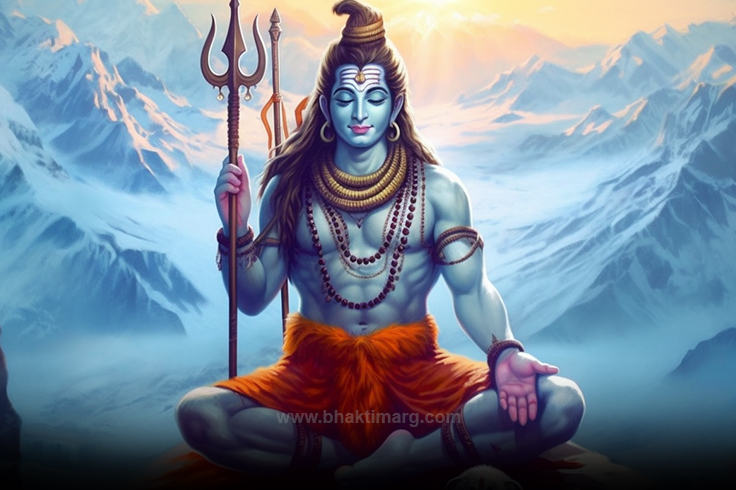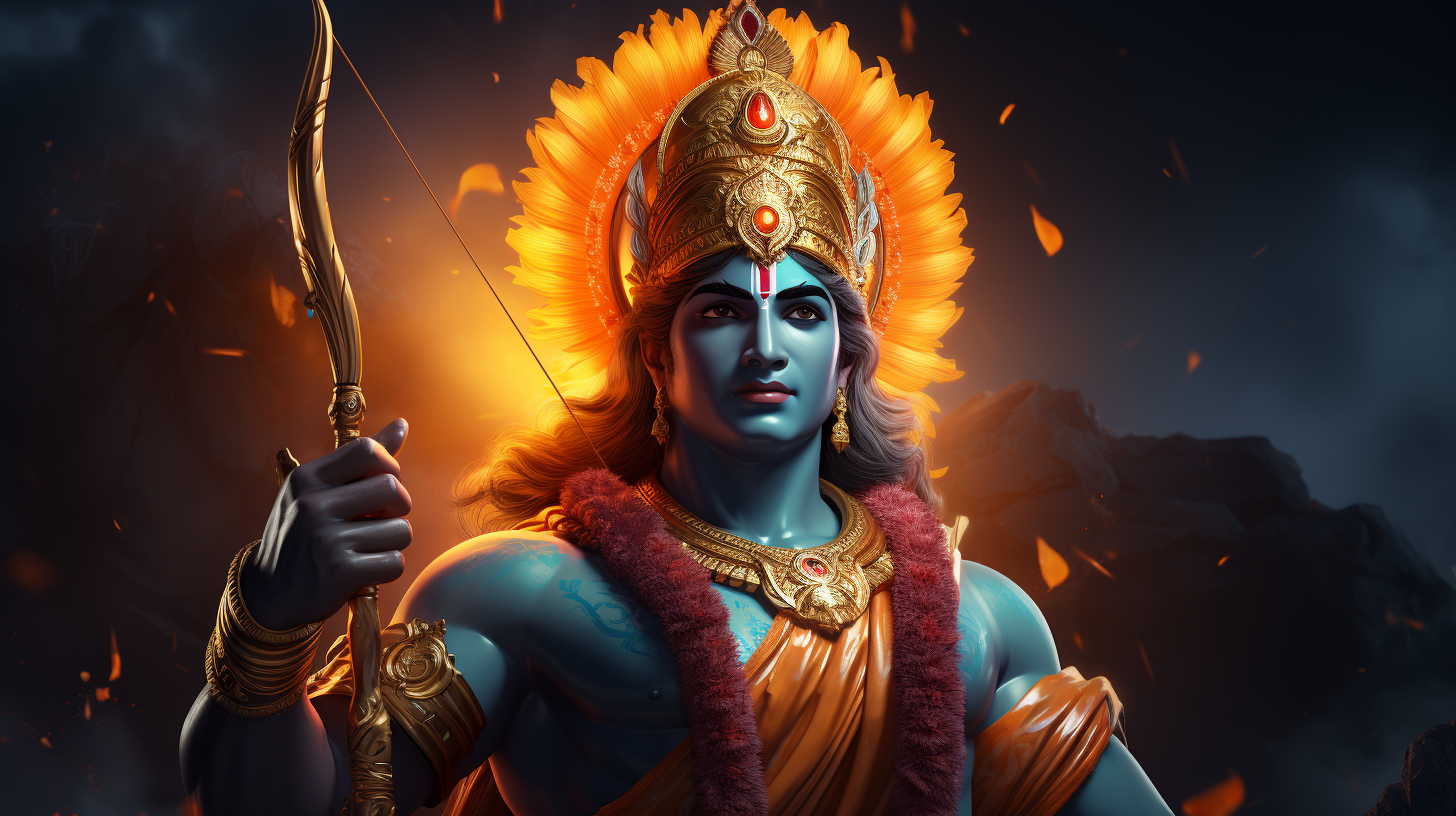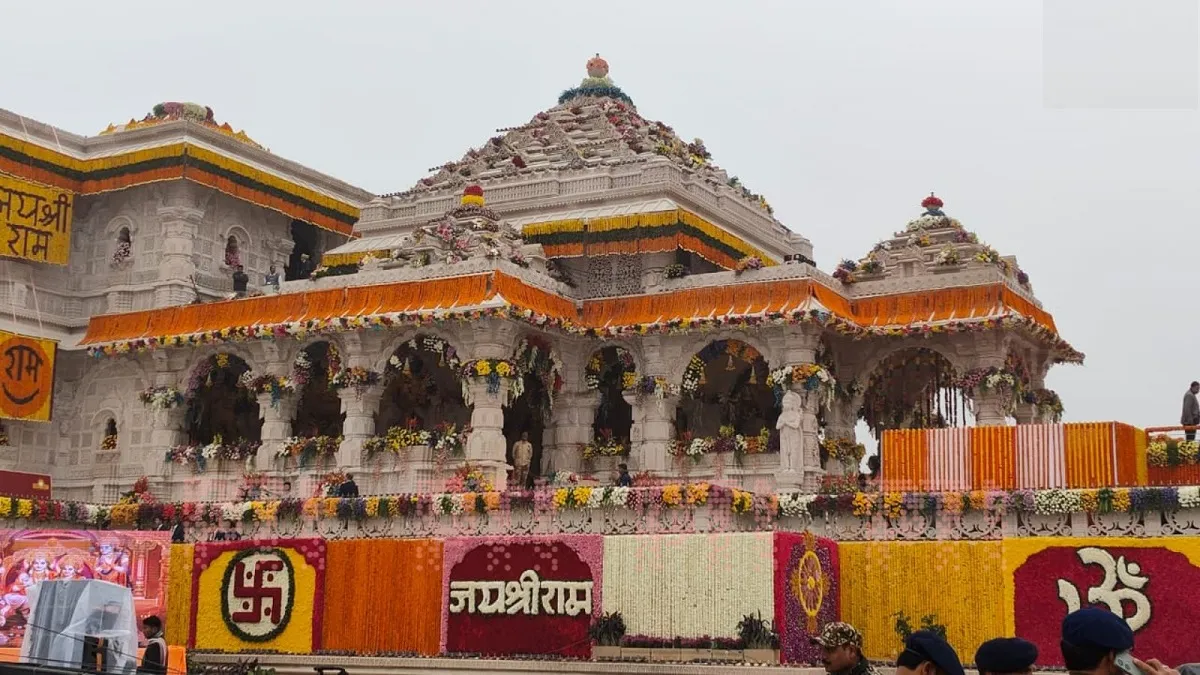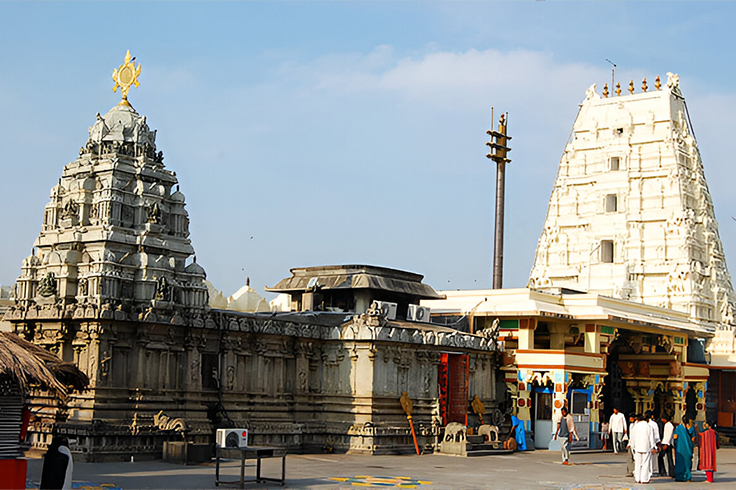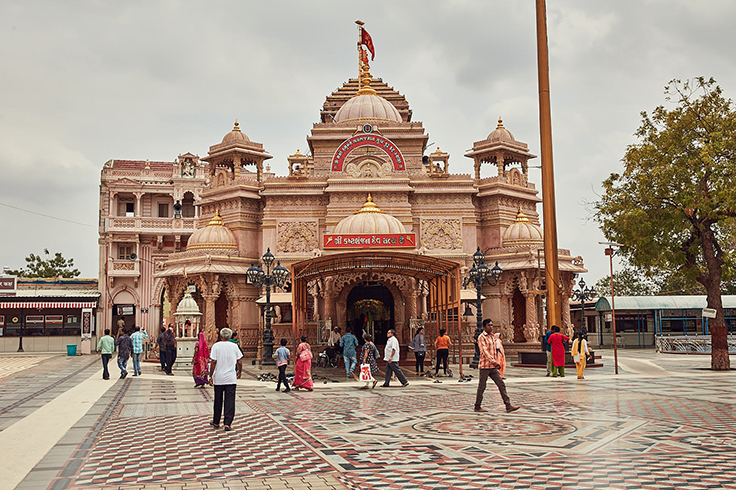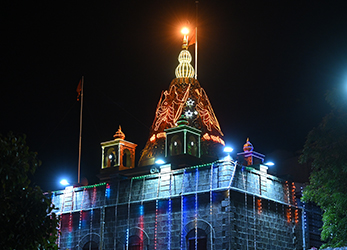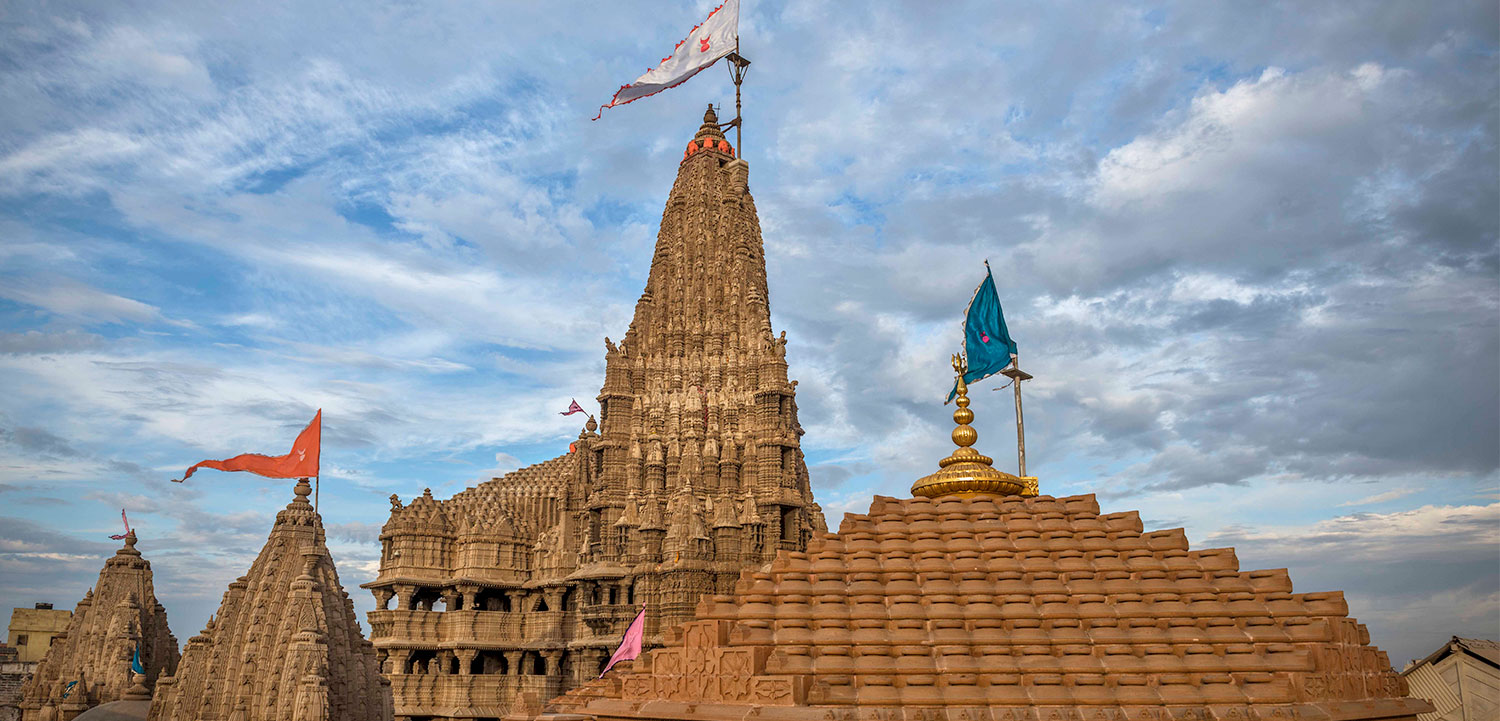Sankatmochan Hanuman Ashtak Lyrics in English
VIDEO CREDITS:
Singer: HARIHARAN
Album: Shree Hanuman Chalisa
Music Director: Lalit Sen, Chander
Lyrics: Traditional
Music Label: T-Series
Baal samai ravi bhakshi liyo tab, teenahu loka bhayo andhiyaro ।
Taahi so traas bhayo jag ko, yah sankat kaahu so jaat na taaro ।
Dewan aani kari bintee tab, chaadhi diyo ravi kasht niwaaro ।
Ko nahin jaanat hai jag mein kapi, sankat mochan naam tihaaro ॥1॥
Baali ki traas kapees basai giri, jaat mahaaprabhu panth nihaaro ।
Chownki mahaa muni saap diyo tab, chahiy kaun bichaar bichaaro ।
Kai dwij roop liwaay mahaa prabhu, so tum daas ke sok niwaaro ।
Ko nahin jaanat hai jag mein kapi, sankat mochan naam tiharo ॥2॥
Angad ke sang lain gaye siya, khoj kapees yah baain uchaaro ।
jeevat na bachihau hum son ju, bina sudhi laay ehaan pagu dhaaro ।
Hayri thake tatt sindhu sabaai tab, laay siya-sudhi praan ubaaro ।
Ko nahin jaanat hai jag mein kapi, sankat mochan naam tiharo ॥3॥
Raavan traas dayee siya ko sab, raakshashi so kahi sok nivaaro ।
Taahi samay hanuman mahaprabhu, Jaay mahaa rajneechar maaro ।
Chaahat seeya asoka so aagi su, dai prabhu mudrika soka nivaaro ।
Ko nahin jaanat hai jag mein kapi, sankat mochan naam tiharo ॥4॥
Baan lagyo ur lakshiman ke tab, praan taje sut raavan maaro ।
Lai griha baidya sushen samet, tabai giri dron su beer upaaro ।
Aani sajeewan hath dayee taba, lakshiman ke tum praan upaaro ।
Ko nahin jaanat hai jag mein kapi, sankat mochan naam tiharo ॥5॥
Raavan yudh ajaan kiyo tab, naag ki phaas sabhi sir daaro ।
Sri Raghunath samet sabai dal, moh bhayo yah sankat bhaaro ।
Aani khagesh tabai hanumaan ju, bandhan kaati sutraas nivaaro ।
Ko nahin jaanat hai jag mein kapi, sankat mochan naam tiharo ॥6॥
Bandhu samet jabai ahiraavan, lai raghunath pataal sidhaaro ।
Devhi puji bhalee vidhi so bali, deu sabai mili mantra vichaaro ।
Jaay sahaay bhayo tab hi, ahiraavan sainya samet sanhaaro ।
Ko nahin jaanat hai jag mein kapi, sankat mochan naam tiharo ॥7॥
Kaaj kiye barh dewan kei tum, beer mahaaprabhu dekhi bichaaro ।
Kaun so sankat mohin gareeb ko, jo tumso nahin jaat hai taaro ।
Begi haro hanumaan mahaprabhu, jo kuch sankat hoya hamaaro ।
Ko nahin jaanat hai jag mein kapi, sankat mochan naam tiharo ॥8॥
॥ Doha ॥
Laal deh laalee lase,
aru dhari laal langoor ।
Bajra deh daanavdalan,
jai jai jai kapi soor ॥
Hanuman Mantra refers to a mantra dedicated to Lord Hanuman, a revered deity in Hinduism known for his unwavering devotion to Lord Rama and his exceptional strength and valor. Mantra is sacred chants or words that devotees believe have spiritual and transformative powers when recited with faith and concentration. At Bhakti Marg, we affirm Hanuman Ji mantra is a powerful tool for spiritual practice, but the efficacy lies in the devotion and intention of the practitioner.
History and Origin
The history and origin of the Hanuman Mantra are deeply intertwined with Hindu beliefs, ancient texts, and devotional practices. While specific historical details may be difficult to ascertain, the evolution of the Panchmukhi Hanuman Mantra is shaped by centuries of reverence and devotion to Lord Hanuman.
The origins of the Panchmukhi Hanuman Mantra can be traced back to Hindu beliefs and the epic narrative of the Ramayana. The Ramayana, traditionally attributed to the sage Valmiki, narrates the story of Lord Rama’s divine mission to rescue his wife, Sita, from the demon king Ravana. Pawanputra Hanuman plays a pivotal role in this epic, serving as a devoted ally and a symbol of unwavering loyalty and strength.
According to Hindu tradition, Hanuman is the son of Anjana and Kesari. He was born with divine blessings, endowed with incredible strength, agility, and devotion to Lord Rama. As Hanuman’s stories and exploits became popular, devotees began to express their reverence through Hanuman Shlok, hymns, and chants.
Over time, as devotion to Hanuman grew, devotees composed hymns and Hanuman Ji Mantra in Hindi dedicated to him. Bajrangbali Mantra was created to channel Hanuman’s divine energy, seeking his blessings and invoking his protection. The Hanuman Ji powerful Mantra was transmitted through oral traditions, allowing the stories and devotion to Hanuman to spread across different regions.
One of the most significant contributions to Hanuman devotion is the Bajrangbali Hanuman Chalisa. Composed by the poet-saint Tulsidas in the 16th century, the Hanuman Chalisa Mantra is a 40-verse hymn that extols Hanuman’s virtues, courage, and devotion to Lord Rama. The Hanuman Gayatri Mantra is another significant mantra dedicated to Hanuman. The Hanuman Gayatri Mantra seeks to connect with Hanuman’s divine energy and seeks his guidance and protection.
Significance
The Hanuman Mantra holds great significance in Hindu spirituality and devotion. Hanuman Mantra lyrics connect practitioners with the divine energy and qualities of Lord Hanuman, a symbol of strength, devotion, courage, and unwavering loyalty. The Hanuman Ji Mantra in Hindi is recited for various spiritual, emotional, and practical purposes, each with its significance.
- Devotion and Connection: Reciting the Hanuman Mantra in Sanskrit is a way to express deep devotion to Lord Hanuman. Devotees seek to establish a personal and spiritual connection with Hanuman, drawing inspiration from his unwavering devotion to Lord Rama by chanting Hanuman 108 names
- Strength and Courage: Lord Hanuman is known for his astonishing strength and valor. Reciting the Hanuman Stotra is believed to invoke these qualities in the practitioner. Panchmukhi Hanuman mantra is usually chanted when facing challenges, difficulties, or situations that require courage and determination. Hanuman Ji Stavan infuses the practitioner with the strength to overcome obstacles and adversities.
- Protection and Blessings: Devotees recite the Bajrangbali ka Mantra to seek the protection and blessings of Lord Hanuman. They believe Hanuman’s divine presence can shield them from negative influences, harmful energies, and dangers.
- Removing Obstacles: Hanuman is considered the remover of obstacles! Chanting the Hanumanji Maha Mantra is believed to help remove hindrances and blockages from one’s path on a physical and spiritual level. Devotees do Hanuman Chalisa Paath to seek Hanuman’s assistance in overcoming challenges and ensuring smooth progress in their endeavors.
- Spiritual Growth and Transformation: The Hanuman Mantra is also associated with spiritual growth and transformation. The mantra’s vibrations, especially in the chanting of the 12 Names of Hanuman Ji, are believed to awaken spiritual energies and facilitate a deeper connection with one’s inner self.
- Cultivating Humility and Selflessness: Lord Hanuman’s humility and selflessness are celebrated in his devotion to Lord Rama. Chanting the Mantra to meet Hanuman Ji can remind practitioners to cultivate these virtues in their own lives.
- Overcoming Negativity: The Hanuman Mantra is believed to dispel negative thoughts, emotions, and influences! Reciting Lord Hanuman Slokas with concentration and faith can help counter feelings of fear, anxiety, and doubt. Reciting Hanuman Chalisa Mantra is a way to channel Hanuman’s positive energy to create a sense of inner peace and mental clarity.
Practice
The practice and rituals associated with the Hanuman Maha Mrityunjaya Mantra vary based on individual preferences, cultural traditions, and specific spiritual goals. Devotees of Lord Hanuman engage in these practices to deepen their connection with the deity, seek his blessings, and experience the transformative effects of the mantra.
The most common and fundamental practice involving the Hanuman Chalisa Mantra is mantra japa, which involves the repetitive chanting of the mantra. Devotees sit in a quiet and clean space, often using a mala (prayer beads) to count the repetitions of the Panchmukhi Hanuman Mantra. The Maruti Mantra can be chanted silently, softly, or loudly, depending on personal preference. The recommended number of Hanuman Mantra Jaap varies but is often in multiples of 108, which is considered a sacred number in Hinduism.
Many devotees include the chanting of the Hanuman Dada Mantra as part of their daily morning and evening rituals. These rituals often involve lighting a lamp or incense, offering flowers, and creating a peaceful atmosphere for focused meditation. The morning practice sets a positive tone for the day, while the evening practice allows for reflection and gratitude.
Devotees recite or sing the Hanuman Chalisa, the most powerful mantra of Hanuman Ji, to invoke Hanuman’s blessings, express devotion, and gain inspiration from his legendary deeds. Hanuman Bhajan is often performed on specific days of the week, like Tuesdays and Saturdays, which are considered auspicious for Hanuman worship.
Devotees often intensify their Sankat Mochan Hanuman Stotra practice on special occasions and festivals dedicated to Hanuman, such as Hanuman Jayanti (Hanuman’s birthday) and other significant dates in the Hindu calendar. These occasions may involve elaborate puja, processions, and group chanting sessions of Hanuman Chalisa full, creating a sense of community and shared devotion.
A key aspect of Hanuman’s character is his selfless service and devotion to Lord Rama. In this spirit, some devotees engage in acts of service (seva) as part of their Hanuman mantra practice. It can include volunteering, helping those in need, and contributing to charitable activities, aligning with Hanuman’s values of humility and compassion.
In addition to chanting Hanuman Ji Mantra in Hindi, a meditation on the Bajrangbali Mantra is a powerful practice. Devotees may close their eyes, focus on the sound or visualization of the mantra and allow themselves to connect deeply with Hanuman’s divine energy. Singing Hanuman Ji Bhajan can lead to inner calm, clarity, and a stronger connection to Hanuman’s qualities.
What Are the Benefits of Chanting Hanuman Mantra?
Chanting the Hanuman Ji powerful mantra is believed to offer a wide range of spiritual, mental, emotional, and even physical benefits to practitioners. Devotees sing Hanuman Bhajans Hindi with devotion and sincerity, seeking to harness the positive energies associated with the deity.
Hanuman is renowned for his exceptional strength and bravery. Reciting or listening to Hanuman Katha is believed to infuse practitioners with these qualities, helping them face challenges, overcome obstacles, and approach life’s difficulties with courage and determination.
The Hanuman Chalisa Mantra is considered a protective shield against negative energies, influences, and forces. By chanting Hanuman Stavan, devotees seek to create a barrier of positive energy around them, which can help ward off harmful vibrations and negative thoughts.
One of the primary aspects of Hanuman’s role is the remover of obstacles, hence the name Sankat Mochan Hanuman. Chanting the Hanuman Shlok with devotion is believed to help clear the path of hurdles, internal and external, enabling smoother progress and success in various endeavors.
Regular chanting of the Jai Hanuman Chalisa lyrics deepens one’s devotion and connection to Lord Hanuman. This enhanced spiritual connection can lead to inner peace, fulfillment, and a stronger bond with the divine.
The soothing rhythm and vibrations of the Hanuman Ji powerful mantra have a calming effect on the mind. Chanting the Panch Mukhi Bajrangbali mantra can help reduce stress, anxiety, and restlessness, promoting mental tranquility and emotional well-being.
Chanting Bajrangbali Mantra requires concentration and focus. Practicing chanting Hanuman ke 12 Naam helps improve mindfulness and concentration, enhancing mental clarity and the ability to stay present.
Hanuman Ji Ki Katha is associated with spiritual growth and self-transformation. Regular practice of the Hanuman Shlok can lead to self-awareness, personal development, and a deeper understanding of one’s spiritual journey.
By connecting with humility and selfless service exemplified by Hanuman, practitioners may develop similar virtues in their lives, leading to more compassionate and altruistic behavior.
Chanting the Hanuman Bajrang Baan is believed to enhance positive qualities such as discipline, dedication, loyalty, and determination, aligning practitioners with the qualities embodied by Hanuman himself.



